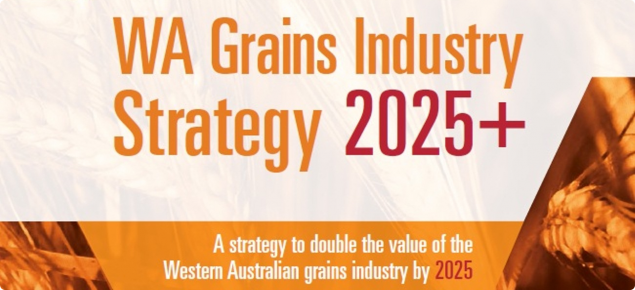The grains industry is the most important agricultural industry in WA; accounting for more than 50% of the gross farm gate value of agricultural production in the state. More than 90% of grain grown is exported as whole grain into highly competitive international markets. It is essentially a high-volume commodity business, and this will continue to characterise the industry through the next decade to 2025.
The broad aim of the WA Grains Industry Strategy 2025+ is to provide a shared whole-of-value-chain focus on actions that will make the biggest contribution to achieving an increase in the value of the industry. It will do this through guiding investment and projects on behalf of the state’s grains industry.
There are eight recommended strategy actions in the WA Grains Industry Strategy 2025+ to double the value of the industry. These strategy actions were arrived at by distilling down the main drivers that the participants in the process thought would deliver significant value-add for the whole WA grains industry.
In addition, specific action strategies have been identified for wheat, barley, oats, oilseeds and pulses and these are the subject of a companion report. Action on the commodity specific strategies will be addressed through respective GIWA commodity councils with the assistance of other industry organisations and individual businesses.
These documents can be downloaded from the GIWA website.

